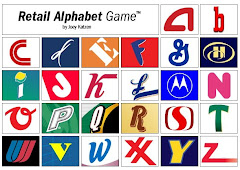Cultural literacy affects our lives, because it is in everything that we say, do, read, and even study. Many children's books are full of cultural literacy. The idea of a princess in a castle and prince coming to save her; that is part of our culture. Children grow up with in various environments and may experience different cultures. A child who grows up in a Hispanic family may not have the same cultural experiences as a child growing up an African American culture.
It is important to learn about cultural literacy, because we see it in our every day lives. We need to be aware that we are using it and the importance of teaching it to children. Many children may not know about Pearl Harbor and its significance in the world; or they may not know about the historical Civil Rights leaders and how they changed our country. It is important that they see how the past culture affects the current culture and the things that we read.
"Research by social psychologists shows that people who grow up in different cultures do not just think about different things, they actually think differently. The environment and culture in which people are raised affects and even determines many of their thought processes" -Marc Prensky, 2001
Sunday, March 30, 2008
Friday, March 28, 2008
What is cultural literacy?
Cultural literacy is the way in which we use various aspects of our culture in our literature. There may be famous lines from movies, such as "here's looking at you, Kid", historical events like Pearl Harbor as "a day that will live in infamy", or to current pop culture references such as "googling" or "facebook me". In order to be literate, we need to not only know how to read and write, but also be able to understand the world around us and how our culture affects what we read and write about.

Professor E.D. Hirsch wrote the book The New Dictionary of Cultural Literacy: What Every American needs to know, in which he wrote that cultural literacy is "a deep understanding of mainstream culture, which no longer has much to do with white Anglo-Saxon Protestants, but with the imperatives of industrial civilization. It is the need for cultural literacy, a profound conception of the whole civilization".
Subscribe to:
Posts (Atom)

